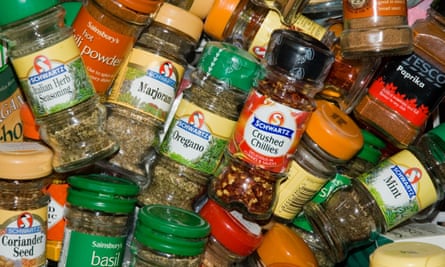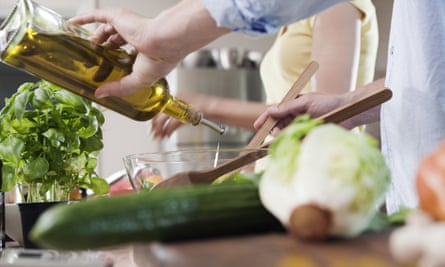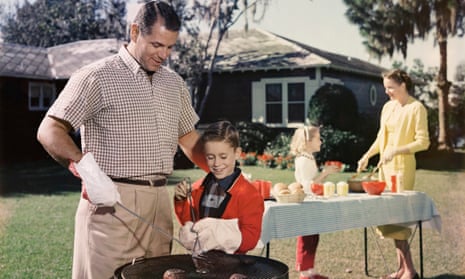Being a good cook isn’t a magical skill that allows you to conjure delicious food from nothing. The truth is, ingredients taste pretty great anyway, and good cooking is often just a matter of making sure we don’t screw it up. But screw it up we so often do. Here are seven ways to ruin your food.
1. You avoid seasoning
I’ve written a lot about seasoning food but I’ll repeat it because seasoning really is the number one, scientifically proven, universally recommended key to cooking well. If you’re watching your sodium and decide not to salt your steak, or you leave out the pinch of sugar that would balance a sour tomato sauce, that’s your prerogative, but you should know that that one decision can be the difference between brilliant or bland.
And of course by seasoning I’m talking about saltiness, sweetness, sourness, bitterness and umami – not herbs and spices …
2. You lean too heavily on herbs and spices
… While we’re on herbs and spices, relying on them to make your food taste good is a great way to miss the point completely. They can be great accents for many dishes, but they won’t make bad cooking good and will often make it worse. In the earlier days of processed food, shake-on spice mixes were all the rage. A flick of the wrist and your chicken could be covered in “Cajun seasoning” or your roast beef could take on the flavour of “herbes de Provence”.
The real benefit of these early spice mixes, however, was adding extra salt and the umami of MSG to under-seasoned food. There’s nothing wrong with herbs and spices per se, but their overuse has been a classic case of misdirection. We were sold on the idea that spices were making our food taste good, when in fact it was just a vehicle for loading on the salt and MSG. I have no problem with salt or MSG either, truth be told, but it’s a common mistake to think that if some herbs and spices are making your food taste good, then more will make it taste better. I’ve eaten far too many meals overwhelmed with the contents of a spice rack when just good clean flavours would have been very welcome.

3. You overcook it
“Well, duh,” I hear you say. Of course we all try to avoid overcooking our food if at all possible, but we don’t often pause to think about whether our idea of how much food to cook is even right in the first place. Almost every cuisine in the world has made a habit of severely overcooking just about everything, a relic of a less sanitary past. Meat was cooked until dull and grey, chicken made rubbery with all semblance of moisture long gone, and vegetables rendered limper than wet newspaper – these aren’t unfortunate mistakes, they’ve been the actual goals of cookery for centuries. In French cooking at least, the idea of eating a crisp green bean is little more than 40 years old.
Our modern-day understanding of food safety allows us to eat medium-rare meat, pinkish poultry and crunchy vegetables where even just a few decades ago they would have been unthinkable. Many may still prefer well-done fillet steaks, soggy carrots and insipid beans, but then there’s no accounting for taste, is there?
4. You stay in your comfort zone
The average family cooks just five dishes, and repeats them again and again. From one perspective you could say that practice makes perfect, but if you never come across new ideas you’re just as likely to be making the same mistakes over and over.
I’ve eaten dishes at Spanish restaurants that have changed the way I cook Chinese food, and stolen techniques from Michelin-starred restaurants that I employ for a simple Sunday afternoon barbecue. Every time you learn and change the way you cook it changes for the better. After all, you wouldn’t do it if it made your food worse, would you?
5. You use a blunt knife
Knife skills are life skills, and learning how to use, maintain and sharpen a knife is one of the most important things you will ever do in a kitchen. But how can a sharp knife affect your food? Simple. A huge part of cooking is creating texture, whether it’s in how you cut something or how you cook something that’s already been cut.
There are few foods that don’t pass under a knife at some stage before they hit our lips. A good, sharp knife will produce fine and consistent cuts for fine and consistent texture. Never, ever underestimate how important that is.
6. You use too little oil
Fat has been the bad guy ever since manufacturers realised they could take it out of foods like milk and yoghurt and replace it with sugar, and then charge a premium for it. But fat is vital for good cooking: it tastes good, it carries flavour and it makes us more satisfied – but most importantly it’s necessary for so many of the cooking processes we use in our kitchens every day.
A well-oiled pan will give you even heat for creating tasty brown crusts on food, it will separate out water that will otherwise steam food at too low a temperature and it will stop fish and meat from sticking to your pots. Trying to cook in a traditional way while removing fat from the process is like trying to drive a car after you’ve removed the tyres.

7. You rush to eat it
Good things come to those who wait, and never a truer word was said about food. The list of foods that are spoiled by rushing them is long and distinguished. Serve a stew before the meat is truly softened? Pour a sauce five minutes before it’s reduced enough to concentrate its flavour? Skip resting your steak because you just damn well want to eat it?
I could list hundreds of other examples, but any of these will be the last-hurdle stumble that ruins a perfectly good meal. Sometimes your most valuable tool in the kitchen is patience.

Comments (…)
Sign in or create your Guardian account to join the discussion